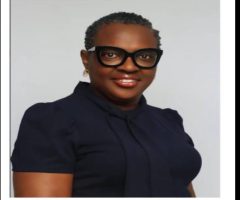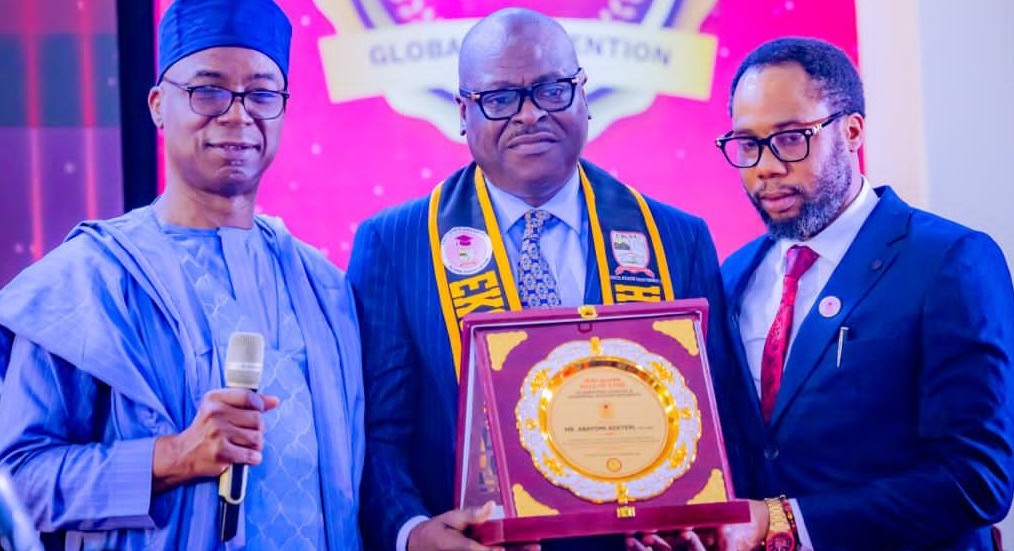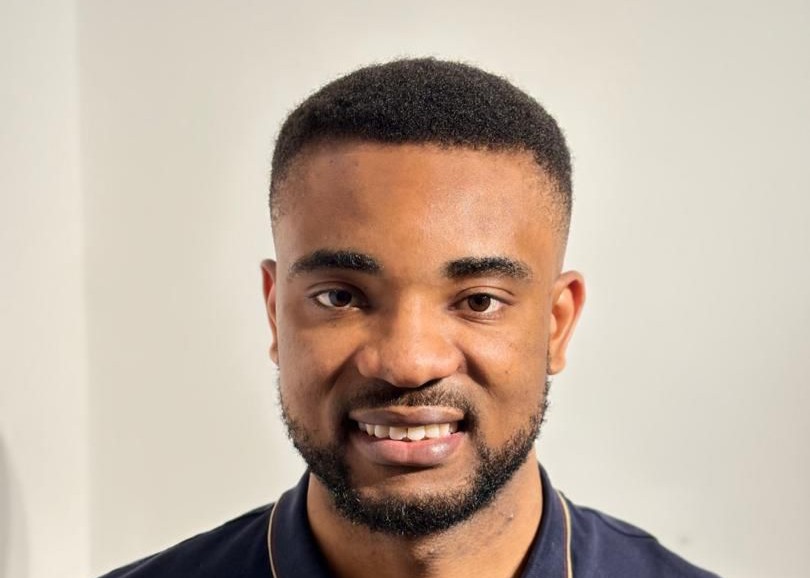From Hospital Bedside to Boardroom: Dr Mairo Mandara’s Journey of Transformative Impact
In the heart of Nigeria’s conflict-affected Borno State, Dr. Mairo Mandara is a driving force for change. With over 25 years of experience as an obstetrician-gynecologist, public health physician, and development strategist, she has dedicated her life to healing and empowering communities.
As Chief Adviser on Sustainable Development, Partnerships, and Humanitarian Response to the Governor of Borno State, she is supporting the reconstruction and peacebuilding agenda, bringing her expertise to bear on Nigeria’s most pressing challenges.
Her transition from clinical practice to public health and development work was driven by a profound realization: helping one woman at a time is not enough to address the complex issues that affect maternal and child health, education, and economic empowerment.
Dr. Mandara’s journey is shaped by her experiences growing up in Jos, Plateau State, where she learned to navigate diverse cultures and perspectives. Her medical training at the University of Jos laid the foundation for her work as a consultant obstetrician and gynecologist. However, it was her experience on the frontlines of healthcare in Zaria that sparked a broader vision: to address the systemic issues that affect maternal and child health, education, and economic empowerment. This vision is rooted in her deep understanding of the complexities of human development and her commitment to creating lasting change.
Reflecting on her journey, she highlights the profound influence of her upbringing, saying, “I was born in Bukuru, Jos Plateau and raised by parents who valued education, tolerance and faith.” This foundation laid the groundwork for her future endeavors. Her educational journey, marked by attendance at both public and missionary schools where she was often one of the few Muslim girls, “fostered empathy for different cultures and a voracious appetite for knowledge.” This exposure not only broadened her perspective but also fueled her passion for learning and helping others. As she pursued her post graduate medical training at the Ahmadu Bello University Zaria specializing in obstetrics and gynecology, she realized that “clinical practice alone could not address the systemic inequities affecting women and children,” which led her to transition into public health and development work, focusing on “reproductive health, education, and social justice.” Over the past two decades, she has worked tirelessly with national and international organizations, and now serves as Chief Adviser to Borno State Governor.
At the core of her work is a profound belief in the transformative power of girls’ education. “Education of females is the most important investment that can significantly and sustainably improve maternal and child health as well as the development of families and communities,” she asserts. This conviction has guided her advocacy and philanthropy, inspiring the creation of The Girl Child Concerns, a pioneering NGO that has supported over 700 disadvantaged girls in completing secondary school. Through the GCC Girls Academy and the Keeping Girls in School Africa movement, Dr. Mandara has created safe spaces and vocational pathways for thousands of girls displaced by insurgency, mobilizing traditional and religious leaders to champion girls’ education in Africa and establishing SME grant schemes and training programs for internally displaced women.
Dr. Mandara’s leadership presence is felt across diverse settings, from high-level boardrooms to rural communities where her work has a direct impact. Her impressive track record of senior appointments includes Nigeria Country Representative for renowned organizations such as the Bill & Melinda Gates Foundation and the Packard Foundation, and Health Systems Adviser for Columbia University. As a Senior Fellow at the Children’s Investment Fund Foundation, she leveraged her expertise to drive meaningful change. Her current role in the North East Governors’ Forum Technical Working Group underscores her commitment to providing technical guidance that informs policy and development initiatives in the region. One of her most notable achievements is her work supporting the Governor of Borno State on the development of the state’s 25-year development plan. This ambitious plan, crafted with input from the people of the state, serves as a recovery and development blueprint aimed at rebuilding the state to be better than it was before. By engaging residents in the planning process, Dr. Mandara has ensured that the plan is inclusive, sustainable, and tailored to the specific needs of the community. This initiative not only showcases her dedication to grassroots development but also highlights her ability to bring people together around a common vision for the future. Her work will likely have a lasting impact on the region, fostering a brighter future for the people of Borno State and serving as a model for development initiatives elsewhere.
As she reflects on her journey, she underscores the essential qualities women need to rise to prominence in Nigeria. “Every woman carries within her an untapped reservoir of greatness,” she believes, emphasizing the importance of hard work, courage, resilience, confidence, and integrity. For her, leadership transcends titles and positions; it’s about presence, conviction, and service. Her own path, marked by a pivotal decision to shift from clinical practice to public health and social development, has been transformative. Despite initial challenges, she has empowered thousands of poor and disadvantaged girls to return to school, empowered women devastated by Boko haram insurgency, and influenced policies that will improve maternal and child health and Nutrition across Africa.
In her role as Chief Adviser to the Governor of Borno State on Sustainable Development, Partnerships, and Humanitarian Response, Dr. Mandara navigated the complexities of working in a conflict-affected region. “Insecurity and, limited resources, and deeply entrenched mistrust were just a few of the hurdles,” she recalls. Yet, through innovative strategies like promoting transparency, establishing a common data-management platform, and engaging traditional and religious leaders, she built trust and fostered collaboration. Her personal resilience was rooted in her faith, family and a network of mentors, enabling her to stay focused on her mission to create lasting change.
The impact of Dr. Mandara’s work is palpable in the stories of resilience and transformation she shares. Communities ravaged by insurgency are slowly rebuilding, with schools, health centers, and livelihoods sprouting anew. Women who lost everything during the crisis have regained their dignity through vocational training and small business support, serving as beacons of hope for others. These stories underscore the power of resilience and the human capacity to start anew when given the right opportunities. Her commitment to establishing institutions and programs that create sustainable pathways for progress is evident in the lives of young people she has touched.
Navigating the complexities of her role as Chief Adviser to the Governor on Sustainable Development, Partnerships, and Humanitarian Response in conflict-affected Borno State, the biggest asset in driving her resolve is the commitment of Governor Zulum to give his people what they need to build back their lives better than before the insurgency. Dr Mandara faced numerous challenges that tested her resolve; Insecurity, limited resources, and deeply entrenched mistrust were just a few of the obstacles she encountered. Coordinating the efforts of hundreds of humanitarian actors and aligning them with government priorities proved to be a significant undertaking. However, she persevered, employing a multifaceted approach to overcome these hurdles. Transparency was fostered, a common data management platform was established, and joint monitoring sessions were organized to ensure a unified and efficient response. By engaging traditional and religious leaders, listening to community grievances, and incorporating their perspectives into planning, trust was built and a sense of ownership was fostered among the local population. On a personal level, she drew strength from her faith, her family, and a network of mentors, who helped her stay resilient in the face of adversity. As she recounts, “Personally, I leaned on my faith, my family and a network of mentors to stay resilient,” highlighting the importance of a strong support system in navigating the challenges of her role.
The poverty alleviation policies implemented in Borno State reflect a nuanced understanding of the complex challenges faced by communities affected by insurgency. Rather than simply providing handouts, the Governor’s administration has focused on empowering families through vocational training, women-led cooperatives and access to microcredit, educational, and agricultural support. This approach recognizes that when women thrive, their entire households and communities benefit. The distribution of support to people affected by insurgency and the government’s resettlement strategy prioritizes fairness and inclusivity, with female-headed households receiving equal support to their male counterparts. Although, the government’s policy provides that every Local Government Area has at least one female counselor is a step towards creating more space for women’s voices in leadership, cultural barriers still pose challenges to women’s participation in politics. The government’s initiatives are slowly but surely paving the way for women to take on more leadership roles and shape decisions that affect their communities.
Dr Mandara supported the Borno State Governor’s vision for a non-kinetic approach to ending the Boko Haram conflict through the “Borno Model for Peace, Reconciliation & Development”. This innovative model emphasizes community dialogue, transitional justice and rehabilitation strategies for former insurgents, aiming to foster long-term stability, peace and development in the state. Her tireless advocacy for girls’ education in Africa and dedication to empowering young women have also had a profound impact. Notably, she has been educating girls affected by the insurgency, some of whom are now medical students while others have gone as far as Harvard, Boston College and Nitre Dame University in the USA. She also founded a boarding school for orphaned girls affected by the insurgency, providing them with a safe haven and opportunities for growth. Her groundbreaking work earned her a place among the finalists for the prestigious 2025 USIP Global Women Building Peace Award and other honours.
A Life of Service and Empathy: Chalya Shagaya’s Story of Passion, Purpose and Legacy.

In a remarkable display of dedication and expertise, Chalya Shagaya has emerged as a beacon of hope for women and youth in Nigeria. With a storied career spanning oil and gas, public service, and the creative economy, Chalya Shagaya brings a unique perspective to the table. As Senior Special Assistant to the President on Entrepreneurship Development, Chalya Shagaya is driving initiatives that unlock opportunities for entrepreneurs, particularly women and youth. We sat down with Chalya Shagaya to discuss the journey so far, challenges, and vision for a more inclusive Nigeria in an interview with The Guardian crew.
Can we have an insight into your background
I am a multidisciplinary professional with experience spanning oil and gas, public service, capital markets, and the creative economy. My academic qualifications include a bachelor’s degree in justice from the School of Public Affairs, American University, Washington DC, a master’s in management information systems, and another master’s in entertainment business management from Full Sail University in Orlando. I also pursued graduate studies in international relations, focusing on women in development. I hold certifications in photography, culinary arts, and forensic crime scene investigation. I am also currently studying for a master’s in Public Administration.
I have worked with globally respected firms such as Vitol SA, Ocean and Oil (now Oando), CAMAC, and Setana Energy, where I focused on business development and government relations. I later transitioned into public service at NIMASA, contributing to both the Public Relations and Shipping Development departments, including Nigeria’s first-ever Global Maritime Security Conference. I have also previously served as Head of Government and HNI Relations at the Nigerian Exchange (NGX), leading critical engagement with public and private stakeholders.
I have a passion for arts, fashion, and cultural storytelling, which has led me to serve on editorial boards and co-executive produce cultural events. In 2024, I was appointed Director General of the National Institute for Archaeology and Museum Studies before I was later appointed Senior Special Assistant to the President on Entrepreneurship Development in Communications, Innovation and Digital Economy.
Who would you say has inspired you the most as a role model?
My late father, Senator (General) John Shagaya, inspired me profoundly. His strength, discipline, and dedication to service shaped my worldview. He taught me that leadership is not about position but about purpose, service, and empathy
What would you refer to as the toughest decision you ever made, and what did you regret about that decision? If the result is a testimony, can you share it with us?
One of the toughest decisions I have made was walking away from a high-level private sector opportunity to pursue a career in public service. At the time, it seemed counterintuitive—leaving commercial comfort for the unpredictability of public sector bureaucracy. But in hindsight, it has become one of the most fulfilling choices of my life.
Through that decision, I have had the priviledge to serve Nigeria at strategic levels and contribute to real change in entrepreneurship and innovation. What seemed like a sacrifice became a stepping stone to national impact.
Kindly talk to us about the entrepreneurship development policies for women and youth in Nigeria and the response of many Nigerian women to this policy.
Entrepreneurship is one of the most powerful tools for transformation, especially for women and youth. Under President Tinubu’s Renewed Hope Agenda, several targeted initiatives have emerged—focused on digital inclusion, access to finance, innovation hubs, and capacity-building for women- and youth-led enterprises.
Our office advocates strongly for programmes that unlock access to capital, skills, and markets. We work closely with agencies and corporates like SMEDAN, NITDA, SEC and the NGX to support entrepreneurs, including those in underserved and remote communities.
Some of the entrepreneurship development initiatives under our Renewed Hope Agenda include a N75 billion single-digit loan to MSMEs through the Bank of Industry (BOI) to support 75,000 MSMEs across the country with N1 million loan each. Presidential Conditional Grant Scheme, for nano businesses, which involves the disbursement of the N50,000 Presidential Conditional Grant Scheme expected to reach small businesses in the 774 local government areas (LGAs).
The response has been overwhelmingly positive. Nigerian women and young people are incredibly resilient and entrepreneurial. Already, we are seeing stronger participation in tech, agriculture, creative industries, and the digital economy.
Comparing Nigerian women with their foreign counterparts, can we say that Nigerians are satisfied with this development?
While Nigerian women remain among the most entrepreneurial in the world, the barriers they face are also among the most challenging. Compared to their foreign counterparts, Nigerian women often operate in informal sectors, without adequate access to funding, mentorship, or infrastructure. But this is rapidly changing.
Some of our policies are ensuring that we can formalise the informal sector and provide them with direct support, which leaves more money in their pocket. An example is the tax reform act, which has now increased the tax exemption threshold for small businesses from an annual turnover of N25m to N50m.
As one of the Most Outstanding and Impactful Women in Leadership, what is your advice for women and youth who are looking up to you as a role model?
My advice is simple: do not shrink yourself. Every room you enter is an opportunity to learn, grow, and lead—no matter your background. Start with purpose, stay curious, and always be prepared. Invest in your education, nurture your creativity, and seek mentors who challenge you to do more. Don’t be afraid to evolve or to start over.
Also, understand that service is not a step down, it is a step forward. If your dreams can uplift others, they are big enough. Finally, never forget that your journey is your power. Use it to light the path for others.
TOMISIN ADELEYE: Driving Brand Strategy and Championing Collective Empowerment

Tomisin Adeleye, Team Lead, Brands and Corporate Communications, at Leadway Pensure PFA, is a strategic brand and communications professional. She has a strong track record in shaping corporate narratives, building brand equity, and driving market engagement across sectors like financial services, energy, health, and FMCG. As Head of Brands and Corporate Communications at Leadway Pensure PFA, she is responsible for leading the organisation’s integrated marketing initiatives, stakeholder engagement, and overall brand strategy. This strategic leadership strengthens the market position and delivers measurable business impact. Tomisin is well-credentialed, holding a degree in Mass Communication from Redeemer’s University, and is an active professional member of both the Nigerian Institute of Public Relations (NIPR) and the Advertising Regulatory Council of Nigeria (ARCON).
Under Tomisin’s guidance, Leadway Pensure prioritises gender equity and diversity, viewing them as essential for innovation and sustainable growth. A crucial initiative is Hersurred by Leadway, a women-focused platform designed to empower women across their financial, professional, and social dimensions through leadership dialogues, mentorship, and workshops. Furthermore, the organisation simplifies pensions, investments, and savings through webinars and interactive sessions that focus on financial literacy and retirement planning for women. They actively promote micro pensions for entrepreneurs and Additional Voluntary Contributions (AVCs), empowering women to confidently secure their financial futures and take charge of their wealth creation journey.
Tomisin shares a powerful message of guidance for her contemporaries, women and girls in Nigeria. “Your voice matters, your dreams are valid, and your possibilities are limitless. Leadership begins when you take ownership of your life and choices. Stay curious, resilient, and authentic. Learn continuously, seek mentorship, and build strong networks. Most importantly, empower others on your journey up. True empowerment is collective, and the future of leadership in Nigeria will be brighter because of women like you”.
ESTHER OBIAJULU: The HR Strategist Blending Professional Excellence with Intentional Life Integration

Esther Obiajulu, the Head of Human Resources at Leadway Pensure PFA, has accumulated over 12 years of professional work experience encompassing different HR functions. Her career background includes time spent across the QSR, healthcare, financial, capital market, and FMCG industries. Academically, she obtained her first degree in Philosophy from the University of Benin, Nigeria, followed by an MSc in Sociology from the University of Lagos. Currently, she is pursuing her MBA with the Lagos Business School. She is professionally affiliated as a member of the Chartered Institute of Personnel Management of Nigeria and is SHRM-SCP certified in Human Resource Management.
To manage competing demands and maintain professional excellence, Obiajulu achieves a healthy work-life balance through strict adherence to a daily schedule, which includes dedicated time for work, family, and study. Her strategies involve time management through prioritising things that matter, leveraging available support systems (family, friends, and colleagues), and maintaining discipline in sticking to set plans.
Regarding the advancement of women in leadership, Obiajulu identifies several significant barriers. These obstacles include issues related to strong women networking platforms, the complexities of work-life integration due to the many hats women wear, gender disparity (especially at senior and management levels), and stereotypes asserting that certain roles are not fit for the female gender. To counteract these challenges, she proposes several intentional solutions. Solutions include strengthening the sponsorship and visibility of women networks, intentionally creating diversity and inclusion at leadership levels, and providing development programs and scholarships to support women across various fields and career levels.
From Boston to Boardroom: How Idu Okeahialam Built Nigeria’s Corporate Future

Madam Idu Okeahialam sits confidently in her Lagos office, radiating the quiet authority that has propelled her to the helm of Royal Exchange PLC. But her journey to becoming one of Nigeria’s most influential female CEOs began with what many considered a reckless gamble; leaving a stable life in Boston with just “a few dollars” and three young children in tow.
“When I left Boston, I had just a few dollars, three young children to take care of, no job, but a strong belief that I could build a meaningful life for myself and my family in Nigeria. Many people thought I was crazy for moving back to Nigeria, but I saw something bigger— I saw vision,” Okeahialam recalls her 2006 decision to relocate.
That vision has proven prescient. Nearly two decades later, the Philosophy graduate from the University of Port Harcourt has become a towering figure in Nigeria’s pension and financial services sector, rising through the ranks from head of operations to chief executive officer across multiple institutions.
Her professional journey reads like a masterclass in strategic career building. After earning her MBA from Suffolk University in Boston, she honed her skills at prestigious American financial institutions including State Street Corporation and Brown Brothers Harriman. But it was her return to Nigeria that truly defined her trajectory.
Breaking through barriers
Okeahialam’s ascent hasn’t been without challenges. As a woman navigating Nigeria’s male-dominated corporate landscape, she has faced both subtle and overt gender bias that would have deterred many.
“At many gatherings, people are surprised to find out that I am female,” she explains matter-of-factly. “Starting from security men at the gates to the receptionists, female leaders are often disregarded. A typical example is arriving at an event with my husband. He would be acknowledged, while I am overlooked.”
These experiences, rather than diminishing her resolve, have shaped her leadership philosophy. She has learned to “navigate this environment with wisdom,” keeping a low profile when necessary while letting her work speak for itself.
Her approach to overcoming workplace politics and gender bias has been rooted in consistency and integrity. “I overcame them by rooting myself in my Christian faith, leaned on the support of my family and friends, honoured those who honoured me in the workplace, and committed myself to doing the right thing consistently,” she states.
A leader’s touch
What sets Okeahialam apart is her distinctive approach to people management. She believes in real-time feedback rather than annual reviews, fostering an environment where “good performance is acknowledged and areas of improvement are addressed constructively.”
“I give feedback in real time rather than waiting until the end of the year. This keeps communication open, encourages growth, and ensures that people always know where they stand,” she explains.
Her leadership style deliberately avoids micromanagement, instead focusing on “guidance, accountability, and empowerment.” This philosophy extends to her commitment to mentoring young women, creating enabling environments where they can thrive while encouraging them to “find their voices and be bold and assertive.”
Beyond the boardroom
Okeahialam’s influence extends far beyond corporate corridors. As a social entrepreneur, she co-founded SFQ Ventures Limited and LasGidis Recyclers, addressing Nigeria’s environmental challenges through plastic recycling. Her passion for youth development led to the establishment of Save our Sons Foundation and No Boy Left Behind, initiatives focused on transforming and rehabilitating young boys.
“My passion is to transform, rehabilitate, train and equip, and reintegrate young boys with values and skills that help prepare them for a strong productive future,” she says of her social impact work.
The power of role models
When asked about her inspiration, Okeahialam points to an unexpected source—her three children. “Seeing how they look up to me has always pushed me to aim higher. Each of them is gifted in unique ways, and their individuality reminds me daily of the responsibility I carry.”
Professionally, she credits Sola David-Borha, former Chief Executive of Stanbic IBTC Bank, as her greatest role model. “Her simplicity, resilience, and outstanding achievements showed me that it was indeed possible for a woman to rise to the very top of corporate leadership without losing her authenticity.”
Living fully
Perhaps most remarkably, Okeahialam has managed to balance her demanding corporate responsibilities with family life and social commitments through a philosophy of full presence. “I balance by being fully present in whatever space I occupy and knowing when it’s time to step away,” she explains.
Her approach to work-life balance is both practical and joyful. “When I’m with family, I’m fully present. When I’m at church, I give it my all. When I’m at a party, I enjoy it wholeheartedly,” she laughs. “Yes, I am the life of a party— I do not go unnoticed.”
This philosophy reflects her broader approach to leadership and life: “I can’t walk into a room and leave it exactly as I found it— my presence should add value. I take charge.”
A legacy in motion
As Royal Exchange PLC continues to grow under her leadership, Okeahialam remains focused on the future. Her journey from Boston to Nigeria’s boardrooms represents more than personal success— it embodies the potential for transformative leadership that combines professional excellence with social impact.
“I always preach work-life balance in the workplace, and more importantly, I live it,” she emphasizes, perhaps offering the most valuable lesson for aspiring leaders.
For the young women following in her footsteps, Okeahialam’s story serves as proof that with vision, faith, and unwavering commitment to excellence, the highest echelons of corporate leadership remain within reach.






